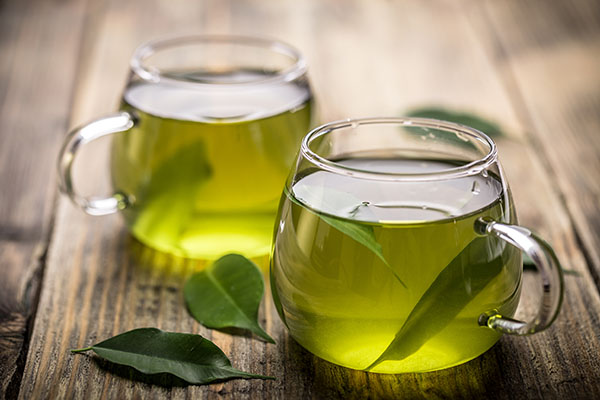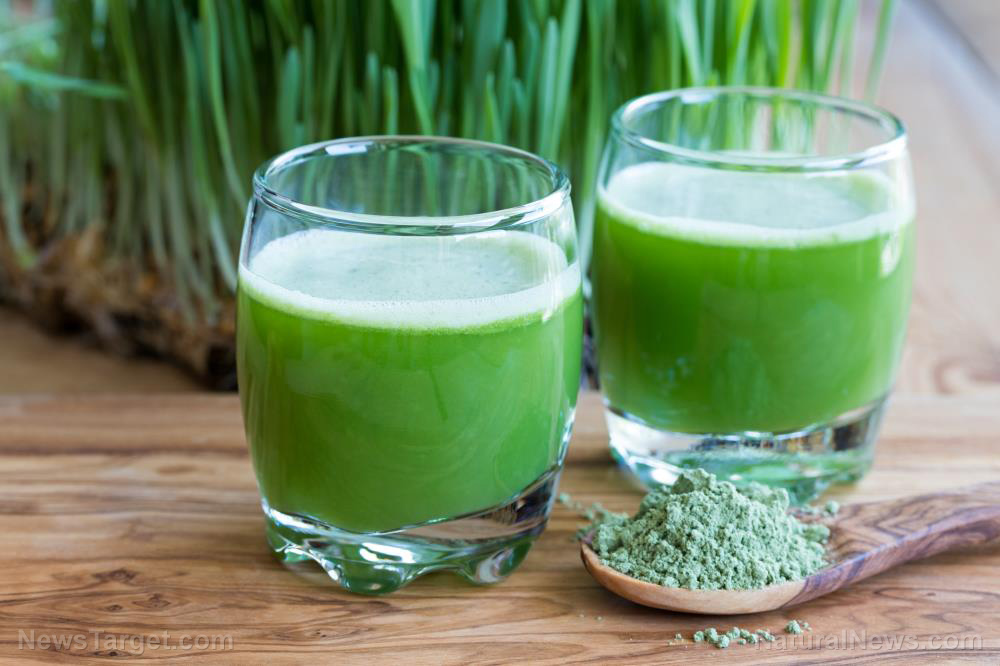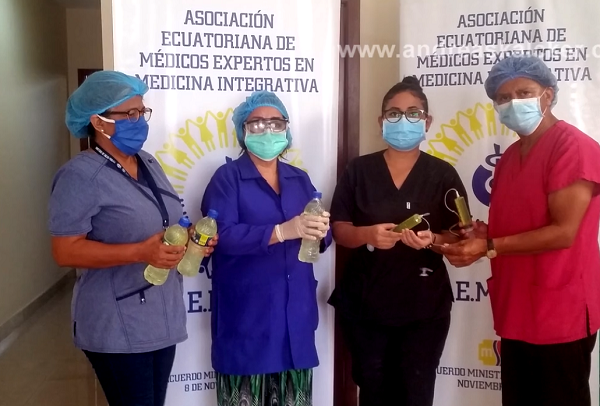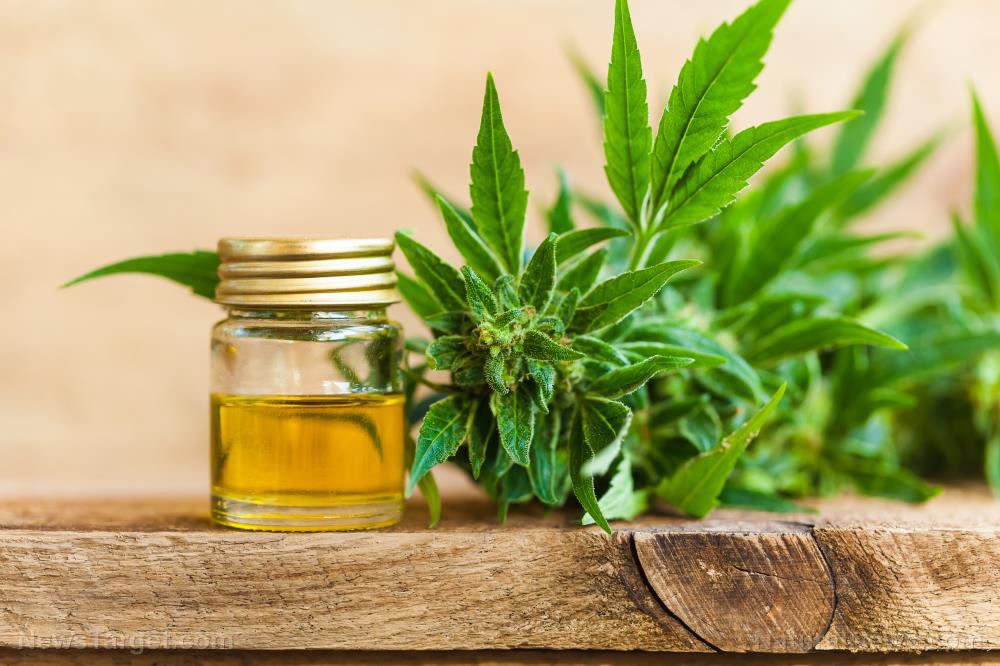
But green tea's usefulness is not limited to just being a healthy drink. According to a study by American researchers, green tea can also be used topically to protect the skin from the harmful effects of ultraviolet radiation (UVR) exposure.
The damaging effects of UV radiation
UVR, particularly from the sun, is a major source of skin damage. Research has linked UVB with wavelengths between 295 to 320 nanometers (nm) to different skin diseases, including non-melanoma and melanoma skin cancers.
In their report, which appeared in the journal Oxidative Medicine and Cellular Longevity, researchers at the University Hospitals Case Medical Center in Ohio explained that UVB's harmful effects are due to its direct interaction with DNA. As a natural chromophore of UVB, DNA can absorb UV light and fluoresce. But this reaction produces photoproducts that, if left unrepaired, can damage skin DNA and cause cancerous mutations.
UVB in sunlight has also been found to suppress the immune system. According to a study published in the American Journal of Pathology, exposure to UVB even in small doses can inhibit optimal immune responses to tumors, contact haptens (small molecules that stimulate antibody production) and microbial pathogens. This means that UVB exposure can increase a person's risk of developing disease.
At the same time, UVB-induced immunosuppression is associated with increased production of reactive oxygen species (ROS) – free radicals that can cause oxidative stress. ROS are usually neutralized by antioxidants before they can damage your cells. But because your antioxidant supply is not limitless, too much ROS production could exhaust your antioxidant defense system, resulting in oxidative damage to cells, lipids, proteins and DNA.
According to the Centers for Disease Control and Prevention, short-term overexposure to the sun's UV rays only causes sunburn. However, with frequent exposure, this type of UV-induced damage can add up and lead to changes in your skin's texture, premature skin aging and skin cancer. (Related: Cancer-fighting herbs: Queen Anne’s lace found to be effective against skin and cervical cancer.)
How green tea polyphenols protect against UV radiation
Human, animal and cell culture studies suggest that the polyphenols in green tea can protect against UV-induced skin damage and immunosuppression. While green tea is often consumed as a health drink, researchers have also explored the possibility of incorporating green tea's beneficial components into topical ointments.
In a study published in the journal Molecules, researchers reviewed six randomized controlled trials that investigated the benefits of regular supplementation with green tea polyphenols. They reported that green tea polyphenols protected against skin redness (erythema) and inflammation caused by exposure to UVB radiation. The researchers concluded that green tea polyphenols present an attractive strategy for photoprotection in healthy humans.
In animals, a green tea polyphenol called gallotechin gallate (GCG) has also shown protective effects against UVB-induced skin damage. In a study published in the journal Scientific Reports, researchers applied GCG on the skin of hairless mice before exposing the animals to UVB radiation. They repeated the treatment and irradiation once a day for six consecutive days.
At the end of the study, the researchers found that GCG inhibited the increase in pigmentation and skin oil production triggered by UVB in untreated mice. GCG also prevented the formation of melanosomes – melanin-containing organelles – and suppressed aberrations in mitochondria in the skin of mice exposed to UVB. In addition, GCG improved skin elasticity by strengthening collagen fibers, proving that green tea polyphenols offer considerable benefits for the skin.
In another study, European researchers explored the protective properties of epigallocatechin gallate (EGCG), the most abundant polyphenol in green tea, using red blood cells exposed to UVB. They reported that EGCG was able to attenuate UVB-induced damage to red blood cells by preventing the formation of ROS and the oxidation of glutathione, hemoglobin and cell membrane lipids. The researchers said that EGCG exerts the same effects on skin cells exposed to UVB.
Topical application of EGCG from green tea has also yielded positive results in humans. In a study published in the Journal of the American Academy of Dermatology, researchers investigated the effects of applying EGCG on the skin of participants following exposure to UVB radiation. They performed biopsies of the treated areas at initial application, after 24 hours and after 48 hours to understand the mechanism behind EGCG's protective benefits. (Related: Scientists discover how polyphenols in green tea may protect health of diabetics.)
The researchers found that 48 hours after EGCG application, keratinocytes (cells in the outermost layer of the skin) actively expressed caspase-3, a protein marker of apoptosis, or programmed cell death. The researchers took this as a positive sign, explaining that UVB-exposed keratinocytes undergoing apoptosis prevent the damaged cells from turning into cancerous cells. This means that applying EGCG from green tea to your skin could be an effective way of preventing skin cancer after sunburn.
Another mechanism underlying green tea's radioprotective effects is the inhibition of cyclobutane pyrimidine dimers (CPDs) formation. CPDs are one of the dangerous photoproducts formed when UVB interacts with DNA. According to studies, CPDs are also "the most common, most harmful and least rapidly repaired pre-mutagenic photoproducts" generated in mammalian cells.
Fortunately, clinical trials show that topical application of green tea polyphenols prevents UVB-induced CPDs formation in both the outer and inner layers of the skin. EGCG in green tea has also been found to promote the repair of CPDs, effectively preventing DNA damage and potentially cancer-causing gene mutations. In mice, both oral supplementation and topical application of EGCG have been found to reduce the number of CPDs in UVB-exposed skin. These findings demonstrate the power of green tea – both as a superfood and as an ingredient in skincare products – in protecting against the harmful effects of UVR.
Other health benefits of green tea
Aside from the antioxidant polyphenols in green tea, other components also contribute to green tea's reported benefits. According to research, green tea can:
- Support healthy cognitive functions and a positive mood, thanks to the presence of caffeine and L-theanine
- Support healthy metabolism, fat-burning and weight loss, thanks to the presence of EGCG
- Protect against Alzheimer's disease, thanks to L-theanine and EGCG
- Help lower blood sugar levels and reduce gut inflammation, thanks to green tea catechins
- Help reduce heart disease risk, thanks to green tea catechins, particularly EGCG
Green tea is a pleasant drink brimming with bioactive compounds that can boost your health. To enjoy the many health benefits of green tea, incorporate this drink into your daily routine. Experts recommend adults drink two to three cups of green tea a day. Depending on the brand, two to three cups can provide 240 to 320 milligrams (mg) of green tea polyphenols.
Watch this video to learn more about the benefits of green tea.
This video is from the Holistic Herbalist channel on Brighteon.com.
More related stories:
6 Scientifically proven benefits of green tea.
Daily green tea consumption found to slash dementia risk by up to 86%.
What’s in a name? Learning the difference between black tea and green tea.
Study shows green and black tea can inactivate several COVID-19 subvariants.
Studies show antioxidant-rich foods can help reduce risk of skin cancer.
Sources include:
Please contact us for more information.






















